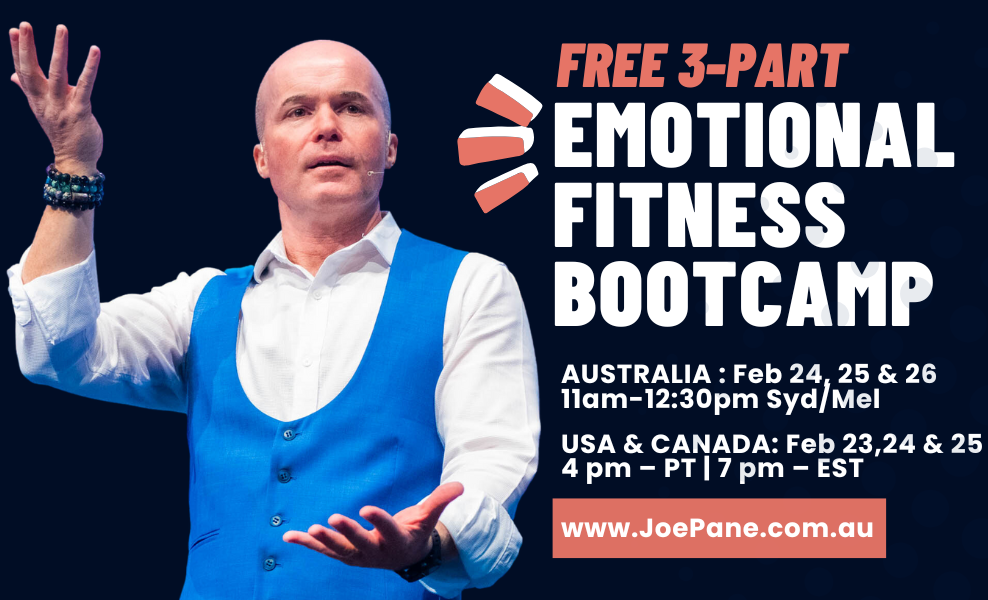A Deeper Exploration of How We Create Meaning.

Every iota of experience is filled with the colours and flavours of our emotions. The quality of our lives is absolutely determined by the quality of our experiences. The quality of our experiences is amplified or minimised by our emotions. Our emotions are our lives. Fascinatingly, our emotions are not automated. Our emotions do not automatically respond to facts.
Our emotions respond to our interpretation of the facts.
The key word is ‘interpretation’. In other words, our emotions are manufactured by the meaning we give our thoughts, and our thoughts are merely what we think is happening in that experience. For example, you are walking down a busy local street and you see your friend across the road. You wave at them and they fail to wave back. What do you think just happened? What is our interpretation of what just happened? What is the meaning you assign to that. Right there is a pivotal moment. The meaning you give that moment is a psychological portal, a doorway to your reality.
Our realities are determined by the meaning we give that micro-moment. Whether I decide to feel sad and rejected or merely giggle and look forward to telling our friend how blind they are or whichever other dozens of meanings we may give this experience, can influence our day more than we may be aware of.
When it comes to our interpretation of our experiences, the order of play seems to be: Experience leads to a thought, meaning is then attributed to that thought, and the emotion is then created. This happens in less than half a second. Our emotions then influence what action we may or may not take. The action we take then may birth another thought, which comes with another meaning, emotion and so on.
Let’s go back to our friend in the street. We wave, they don’t wave back. The meaning I give that experience is that I feel sad and rejected. Because I feel sad and rejected, I may decide to isolate myself. In isolation (experience) I have another thought/meaning, ‘nobody ever reaches out to me’ ….the meaning I give that is I feel upset or maybe even angry, so now I decide to send an angry email to my friend…immediately after pressing send I now feel guilty, and on and on it goes……all of this has been created by me. It happens so fast, the illusion is that ‘this is just how I feel.’
The question I want to explore here is, how do we create meaning? What influences the meaning we give our thoughts? Can we change the meaning? How do we do it?
I have a few different directions I would like to take this conversation so as to answer these questions thoroughly.
Firstly, all change is only one thought away. Awareness is the precursor to all change. In other words, being aware that we can change what meaning we give our experiences is the beginning of transforming how we experience anything. There are many layers to our awareness.
Let’s begin at the most surface layers and then go deeper.
Most people are unconscious meaning making machines. How do we become conscious meaning making machines?
Layer 1. (Surface level)
Viktor Frankyl in ‘Man’s Search For Meaning’ said that the most important time that we have is that fine time between stimulus (experience) and response (the meaning we give something). We can break the response element into two parts;
- at the meaning created level and
- at the trigger
At the meaning created level, we can bring our attention to the fact that we don’t know why our friend hasn’t waved back at us, and right there take conscious control of what meaning we may choose to create. We break the automated circuit with a question like “how do I know this (the meaning I have given) is true?” The answer 99% of the time is that we don’t know.
The trigger level is based on an echo of our original meaning. For example, our friend doesn’t see us waving, we give it the meaning that we feel sad and rejected and because of this meaning we decide to isolate ourselves. This action of isolation then creates an extended meaning of ‘nobody ever reaches out’, so we decide whilst feeling that way to send an angry email. The trigger point is between the action and the new meaning/feeling created. (ie that fine time between the action of isolation and the meaning of ‘nobody ever reaches out’). We have an opportunity right there to press pause and stop the isolation strategy.
This immediately short circuits the following action of sending an angry email. Now we will prevent the feeling of guilt and regret which would arise if we sent our friend an angry email….all because the original fire starter here was that they didn’t wave at us from across the street!! We can short circuit this line of thought anytime.
Layer 2 (Just under the surface)
What is it that influences the meaning we give this event of our friend not waving back at us. Why is it that one person may not even give this experience a single thought, and just continue on their merry way, while somebody else experiences the same moment and suddenly goes into the space of feeling sadness, isolation, rejection, send angry email, feel guilty, which may then lead to self detructive behaviour? What a difference!!! Why?
The answer my friends, is blowing in the wind…..oh I have always wanted to say that!! The answer is not blowing in the wind!!! Dear me.
The answer lies in our past. Or more accurately put, our interpretation of our past.
Our truth of now is mostly influenced by our past, and least influenced by what is happening right now. Seeing our friend across the street, waving at him and he doesn’t wave back is only 1 byte of data of experience in comparison to megabytes of historical data.
It is the quality of our historical data which will determine the actual truth (eg he just didn’t see me), the apparent truth (eg. he is ignoring me) or the imagined truth (he doesn’t like me, I feel rejected). If we are not aware of this, and now you are, our interpretation of what once happened is influencing the meaning of what is!! The great news is we can change all this.
Given we are meaning making machines, we can also change our interpretation of what once happened. For example, if I am reacting to my friend not waving back with sadness and rejection, that is because this micro experience has triggered some kind of memory perhaps of all the times I may have experienced sadness and rejection in my past. It is not always as simple as that, but there is certainly a connection between our micro experiences of now and our historical narrative.
Most of us are unconscious slaves to our history. Becoming aware of how much influence and power our history can have on us, becoming aware of this changes everything, because we can reset, redeem, restart, or even reignite. Remember all change is only one new thought away.
You are more truly you when you don’t remember your past.
Have you ever re met a high school friend 10, 20 or 30 years later? Have you noticed how challenging it can be to look beyond your memory of who they were? They, like us, have changed a lot over these years, but our only experience of them was 1987 not 2020 and beyond. We are still stuck in responding to our idea of who they were! We are always responding and creating meaning to the idea we have of someone else.
For example many years ago, in one of my 3 day workshops, I got to know this wonderful woman, in her 30s, who was seeking a career change. She wanted to bring more depth, meaning and spiritual principle into her professional life. I assumed she was some kind of healer, consultant or perhaps counsellor. I was already responding in our conversation to the idea I had of her in my mind.
When she told me she was a policewoman, and had been a policewoman for 10 years this was a complete surprise and I just couldn’t see her in that capacity. I just couldn’t see how she would have a gun, uniform and dealing with a whole range of members of our society. This was grossly inconsistent to my idea of who she is.
If I had of met her weeks later in the street as a policewoman, I would see her as a healer, counsellor first and then maybe as a policewoman. If on the other hand I had been pulled over for speeding by her, and this had of been my first time meeting her, and then seeing her in my workshop, I would be feeling completely different about her, initially anyway, because my idea of her would be as policewoman first.
What does this have to with us and our historical narratives? Everything. Our historical narratives are nothing more than an outdated idea we have of who we think we once were! Fundamentally how we see ourselves, is nothing more than an idea about ourselves. If we are not aware of this (and now you are!) it is incredible how much power people’s narratives still hold over how they create meaning in their lives.
Who you and I are today is vastly different to who we were 10, 20 or 30 years ago. Whilst this may seem obvious to some of you, what is not so obvious is that many people still hold an idea of their past that hasn’t changed and not been upgraded to who they are today! They remain unconscious victims to their historical narratives. That historical narrative no longer exists! It is simply a memory and an outdated idea of who we once were. We know this is true because the 2020 version of you can handle responsibilities, challenges and issues that the 2000 model of you could simply not cope with!
Becoming aware of the power our past can have over us by bringing the awareness I hope this article is bringing, can reset, redesign and redeem the idea we have of ourselves so our historical data can catch up to who we have become. By changing how we see things now we are recreating our history as we move forward.
This will then change and positively influence the meaning we give our thoughts which then changes the emotional flavour which then in turn changes how we experience anything! How’s that for an idea?
Stay connected with news and updates!
Join our mailing list to receive the latest news, VIP invites to events and updates from our team.
Don't worry, your information will not be shared.
We hate SPAM. We will never sell your information, for any reason.



